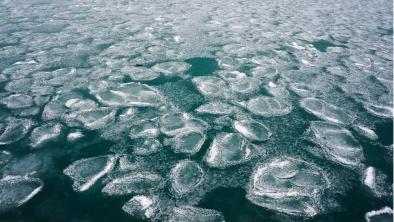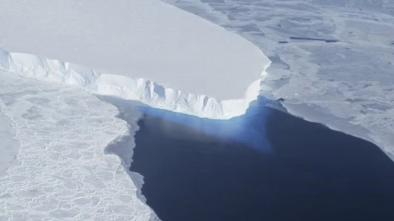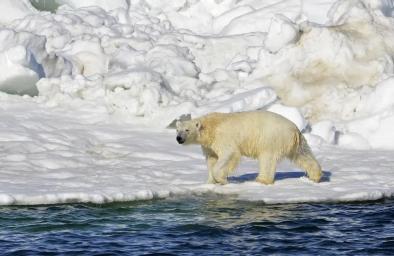Science Source
Greater role for Atlantic inflows on sea-ice loss in the Eurasian Basin of the Arctic Ocean
- States that Arctic sea-ice loss is a leading indicator of climate change and can be attributed, in large part, to atmospheric forcing
- Shows that recent ice reductions, weakening of the halocline, and shoaling of intermediate-depth Atlantic Water layer in the eastern Eurasian Basin have increased winter ventilation in the ocean interior, making this region structurally similar to that of the western Eurasian Basin
- Finds the associated enhanced release of oceanic heat has reduced winter sea-ice formation at a rate now comparable to losses from atmospheric thermodynamic forcing, thus explaining the recent reduction in sea-ice cover in the eastern Eurasian Basin
- Concludes that this encroaching “atlantification” of the Eurasian Basin represents an essential step toward a new Arctic climate state, with a substantially greater role for Atlantic inflows
Related Content
Science Source
| Nature
Regime shift in Arctic Ocean sea ice thickness
Headline

Feb 21, 2023 | Climate Nexus Hot News
Ice Absent From Great Lakes, New England
Headline

Feb 16, 2023 | Climate Nexus Hot News
Antarctic Sea Ice At Lowest Recorded Levels, Again; Thwaites Glacier's Weak Spots Getting Weaker
Headline

Jan 25, 2023 | Climate Nexus Hot News
Melting Sea Ice Could Increase Threatens Polar Bears, People


